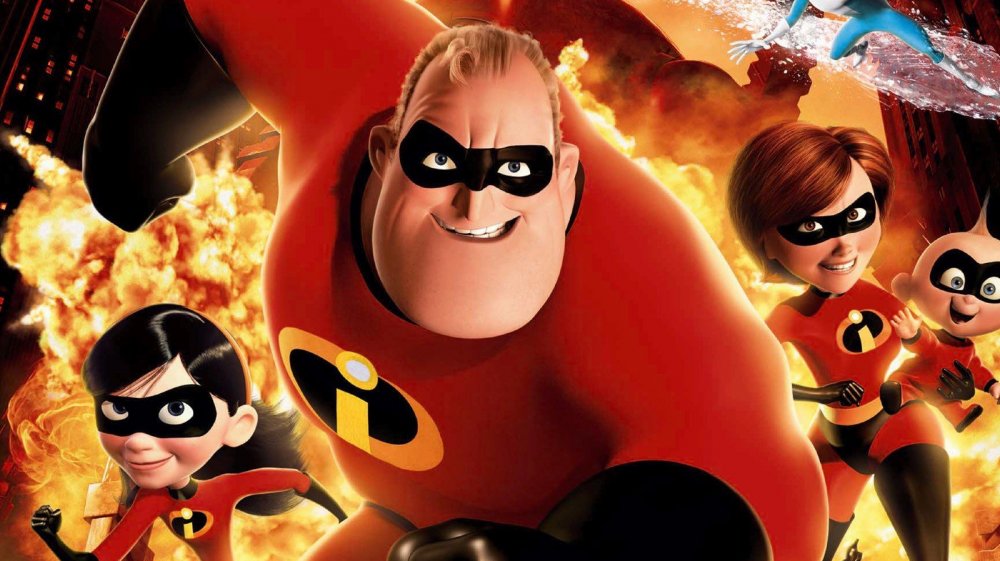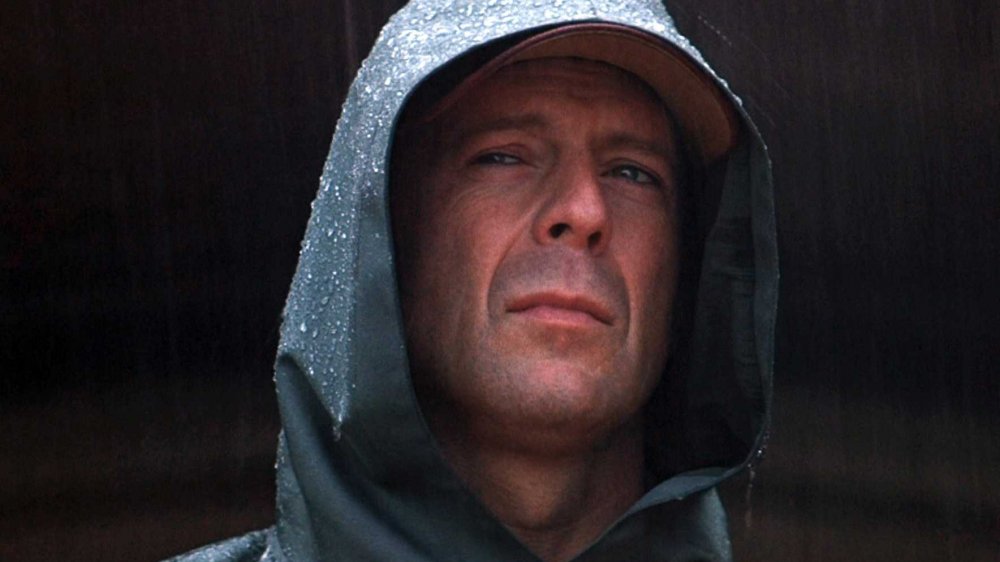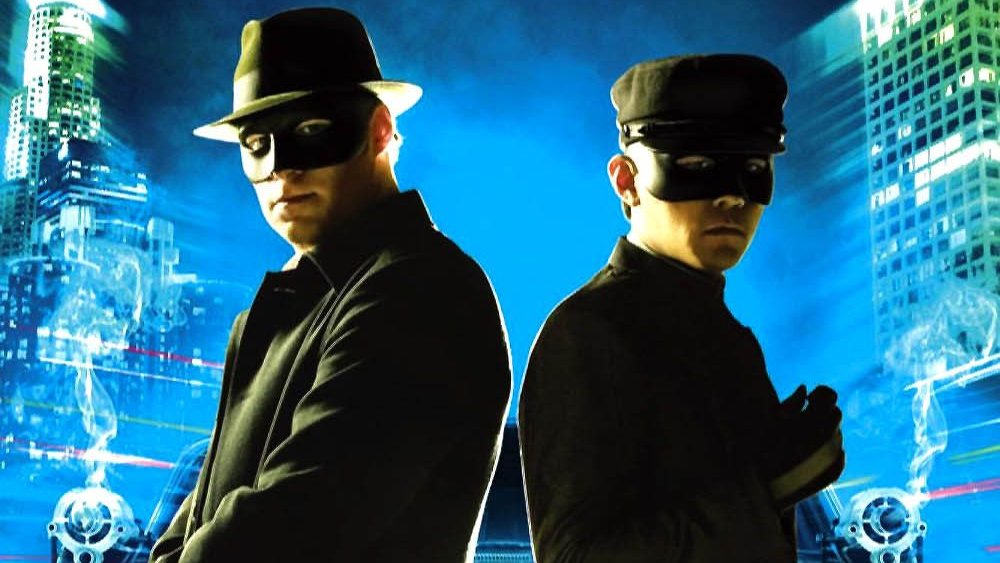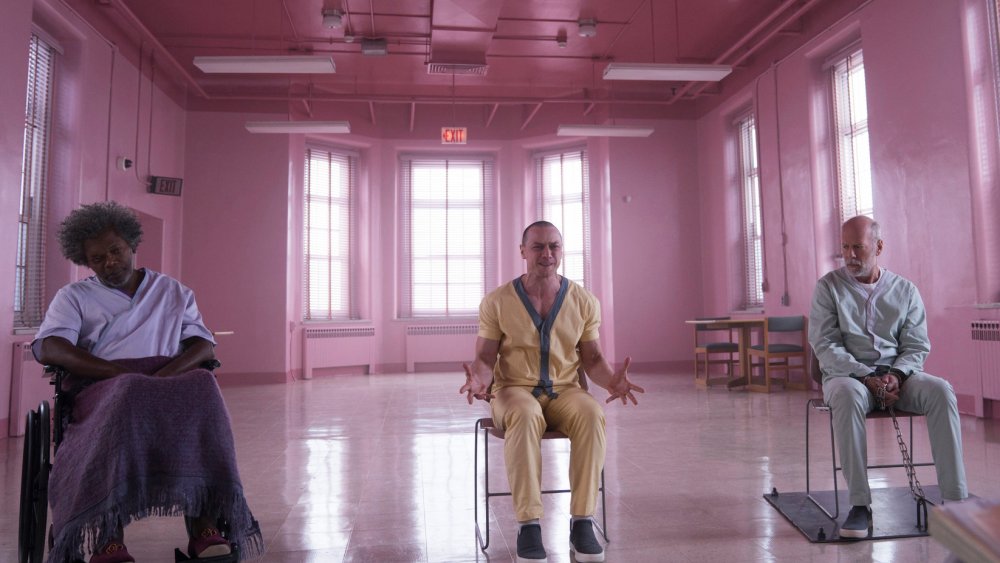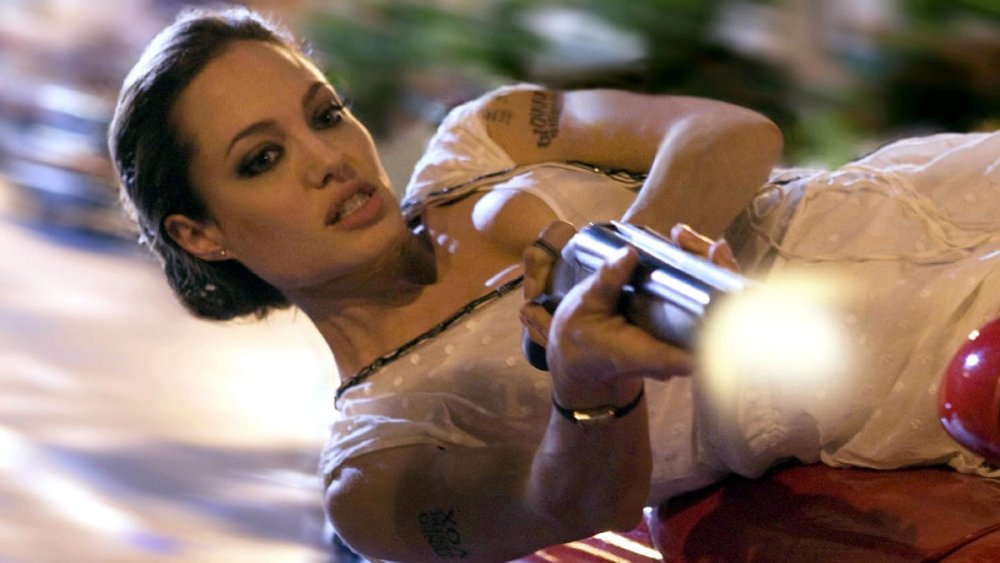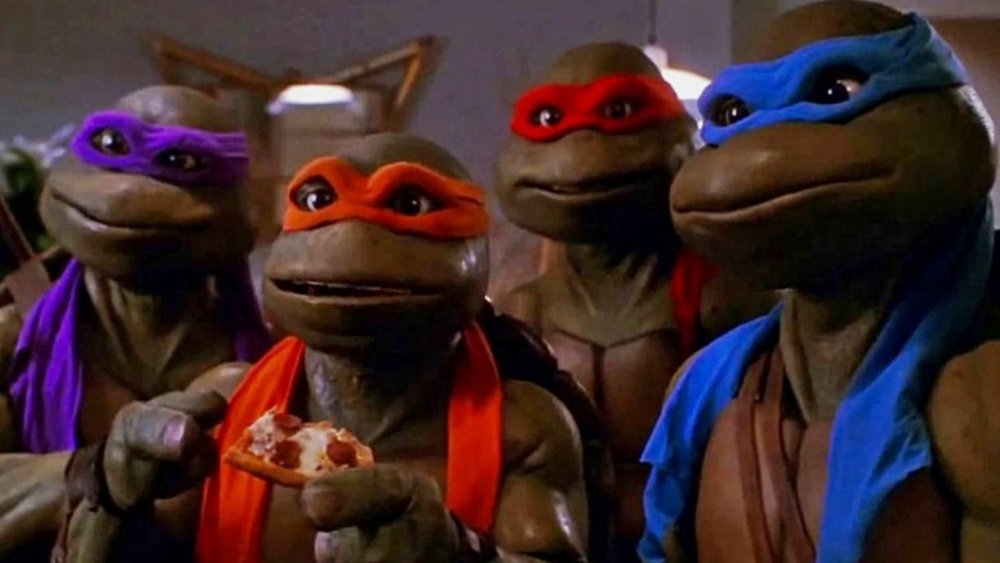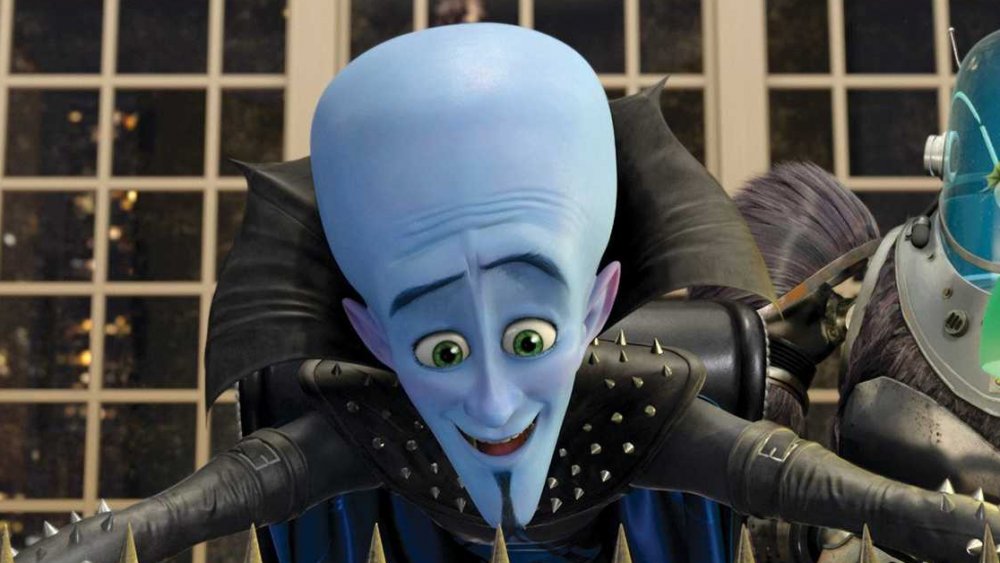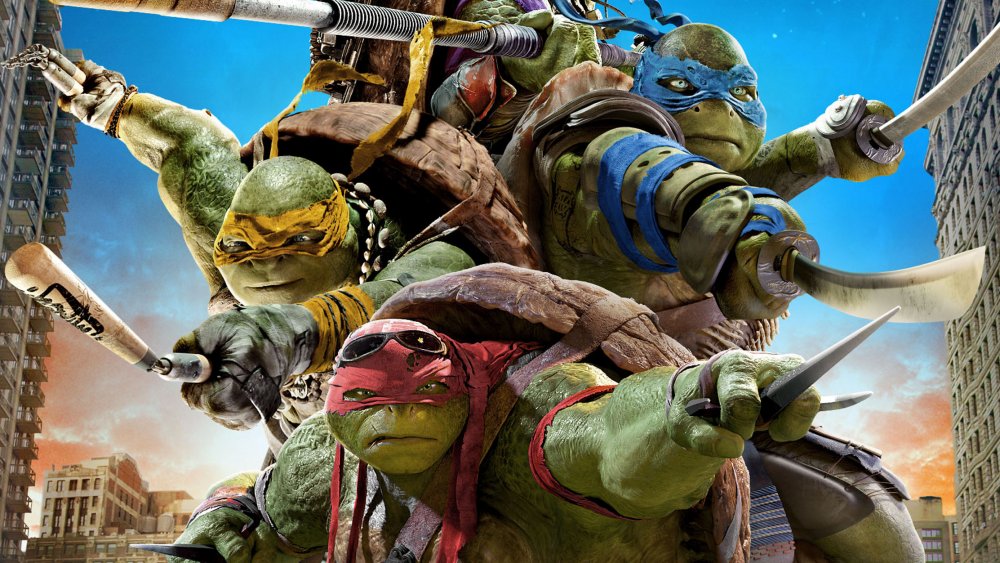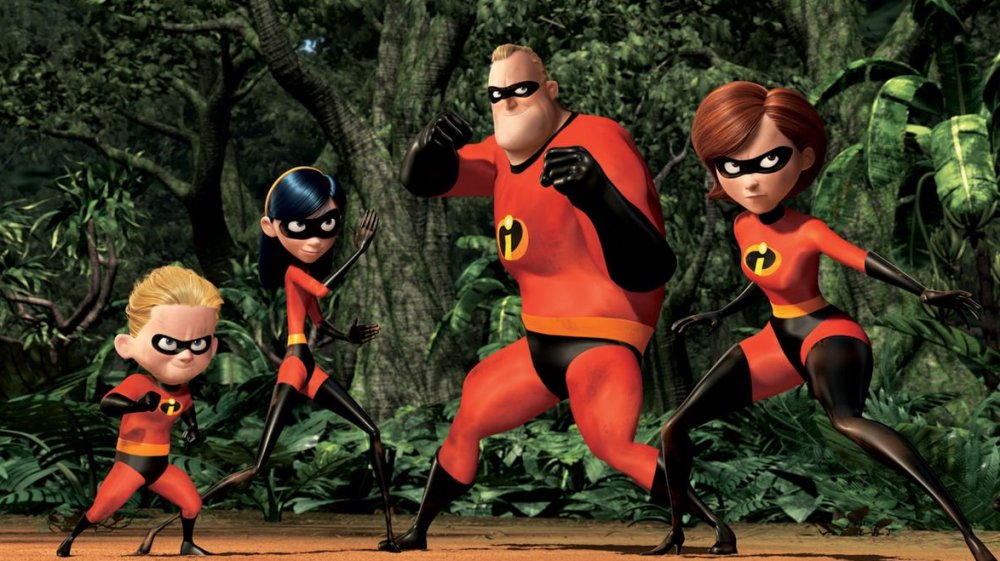The Highest-Grossing Superhero Movies That Aren't Marvel Or DC
In the world of superhero media, it can feel like there are only two options for stories — ones based in the Marvel Universe and ones based in the DC Universe. The popularity of the Marvel and DC characters, as well as the fact that both companies are owned by media conglomerates that can plaster their characters everywhere, has made these two franchises seem like the only places to go for superhero storytelling. Of course, that's not the case. Plenty of options for superhero adventures exist outside of Marvel and DC. That's true for comics, TV shows, video games, and yeah, even movies.
The first forays into superhero cinema were serials starring Flash Gordon, a character who exists well outside of Marvel and DC. And since then, many of the most popular entries in this subgenre have had nothing to do with the big two studios. Instead, these films have starred completely original superheroes — some from smaller comic book companies and some made just for the silver screen. And sure, these heroes might not be faster than speeding bullet or be able to crawl up walls, but their successful runs at the box office prove they can still deliver satisfying thrills to moviegoers.
(Oh, one quick note before we get started. We'll be taking a look at the highest-grossing films at the domestic box office, and we won't be adjusting for inflation.)
Unbreakable broke through some serious barriers
It sounds unthinkable now, but there really was a time where movie studios were afraid to market their titles like superhero movies. Such was the case with the 2000 feature Unbreakable, which was marketed like a thriller devoid of any superhero elements. This ran totally opposite to the film itself, which had characters like Mr. Glass (Samuel L. Jackson), who primarily spoke in comic book jargon. More importantly, this marketing decision ran counter to the wishes of writer/director M. Night Shyamalan. The filmmaker told The New York Times that he wanted Unbreakable to be marketed like a superhero movie, but Disney wanted to promote Unbreakable in a manner evocative of Shyamalan's breakout hit, The Sixth Sense.
Though the marketing downplayed the superhero quality, Unbreakable still became another box office hit for M. Night Shyamalan. Released over Thanksgiving 2000 against fellow Disney title 102 Dalmatians, Unbreakable went on to gross a solid $95 million domestically. That was a massive step down from the box office haul of The Sixth Sense, but no project would ever be able to recapture that film's lightning-in-a-bottle success. On its own merits, Unbreakable proved to be plenty profitable, and it even managed to score widespread acclaim. In fact, Unbreakable had enough of an enduring appeal to generate two follow-ups nearly two decades after its release. Such feats are especially impressive considering Unbreakable was saddled with marketing that ignored the fact that it was a superhero movie.
If not for its budget, the Green Hornet would've done even better
In an age where Chris Pratt and Paul Rudd are now superheroes, the idea of Seth Rogen playing a superhero like The Green Hornet doesn't sound like such a ludicrous premise. But back in 2011, The Green Hornet seemed like an odd proposition, with the Knocked Up star being set to fight crime alongside Jay Chou as Kato. Still, the unexpected mixture resulted in decent box office results. The production grossed $33.5 million on opening weekend, topping the domestic box office.
Afterwards, The Green Hornet managed to hold on at the box office long enough to gross $98.5 million domestically. While a step down from the box office hauls of Rogen vehicles like Knocked Up and This is The End, Hornet still did decent business. Its numbers look particularly rosy when compared to other early 2011 tentpoles like I Am Number Four and The Dilemma. In a rough winter for movies, The Green Hornet managed to burn brighter than most.
However, what kept it from being an even bigger hit was its $120 million budget. The film's producer, Neil Moritz, told The Hollywood Reporter that The Green Hornet's budget ballooned with the decision to convert the movie into digital 3D. Apparently, at its original budget, the film's domestic box office would've been superheroically profitable. Unfortunately, The Green Hornet wasn't able to deliver the kind of profits that would make Seth Rogen join Paul Rudd and Chris Pratt as superhero movie icons.
Glass was a unique superhero hit
M. Night Shyamalan's long-anticipated follow-up to Unbreakable brought that film together with the world of fellow Shyamalan film Split. Combining two Shyamalan features resulted in Glass, which saw the world of superheroes crashing to Earth. Instead of cities getting blown up, the very existence of superpowered people itself was questioned. Not typical material for a traditional American superhero movie, but it turned out to be a recipe for a hit.
Grossing $111 million domestically, Glass wasn't as big of a hit as Split, nor did it come anywhere near to matching the box office hauls of the biggest modern-day superhero movies. For comparison's sake, Avengers: Endgame made more in its opening day than Glass did in its entire domestic run. However, budgeted at just $20 million, Glass never needed to hit MCU-level numbers to be lucrative. Glass still did over five times its budget and handily outgrossed Unbreakable at the domestic box office. As a cherry on top, it's still one of the biggest movies ever released in January, as well as one of Shyamalan's most successful features, according to The Numbers.
A lot had changed in the two decades separating Unbreakable and Glass, particularly when it came to the world of superhero movies. However, some things are eternal. As seen by the successful box office run of Glass, one of those eternal things is that the filmmaker behind The Sixth Sense can conjure up new superhero stories that attract moviegoers.
Wanted made millions at the box office despite its R rating
Long before he took on the role of Charles Xavier, James McAvoy first dipped his toes into the superhero movie game with Wanted. A star-studded affair featuring Angelina Jolie and Morgan Freeman, Wanted wasn't your normal superhero story, particularly by the standards of 2008. A hard-R film full of guns, violence and profanity, Wanted wasn't going to be winning any Kid's Choice Award trophies. However, even with its adult content, it did manage to score a respectable box office sum.
With a domestic gross of $134.5 million, Wanted became a major hit. This box office performance was especially impressive given that it was based on a limited series comic run by Mark Millar that was far from a household name. However, Deadline observed that Wanted overcame obscure source material thanks to the presence of distinct-looking action and Angelina Jolie. The outlet observed that, thanks to those elements of its marketing, Wanted scored the sixth-biggest opening weekend ever for an R-rated film at the time. Wanted didn't need a traditional superhero to help it become a massive hit. To boot, it helped pave the way for future R-rated superhero movies like Deadpool to do as well as they did.
Teenage Mutant Ninja Turtles was an indie sensation
The 1990s were an exciting time for independent filmmaking. Directors like Kevin Smith, Robert Rodriguez, and Cheryl Dunye were changing the very concept of who got to make movies in Hollywood. The boom for indie films in the 1990s was kicked off right out of the gate with the March 1990 release Teenage Mutant Ninja Turtles movie, which technically qualifies as an independent film. Per The Hollywood Reporter, the first live-action Teenage Mutant Ninja Turtles movie was rejected by every major studio, forcing the production to be made outside of the studio system. It was a bold move, but one that ended up paying off handsomely for all involved.
Per the Los Angeles Times, Ninja Turtles opened to $25 million on its opening weekend, a massive sum that gave it, at the time, the biggest debut ever for an independent movie. These four superheroes weren't just a one-weekend wonder, though. According to The Numbers, Teenage Mutant Ninja Turtles held on well enough to gross $135 million domestically. To this day, it's still the second-biggest movie in the Ninja Turtles franchise, even without taking inflation into account. While studio executives were doubtful of the project, the 1987 Ninja Turtles cartoon had given this group of heroes enough notoriety to ensure they could carry a hit movie. Like many other independent movies of the 1990s, the first Teenage Mutant Ninja Turtles took big risks and, in the process, helped rewrite the playbook on where lucrative movies could come from.
Megamind made millions ... but it wasn't enough for DreamWorks
Pixar isn't the only animation house capable of producing original superhero movies. In November 2010, DreamWorks Animation dropped the underrated comedy Megamind. This was a movie that was intended to do for superhero films what the studio's earlier blockbuster, Shrek, had done for fairy tales. As the posters for Megamind proclaimed, "The superhero movie will never be the same."
Megamind grossed $148 million domestically. That gross was above many other original superhero movies, but it was a fairly underwhelming sum for a DreamWorks Animation tentpole. Compared to the domestic grosses of other DreamWorks cartoons, Megamind came in $70 million behind How to Train Your Dragon from March 2010, as well as 25% less than the studio's Monsters vs. Aliens from March 2009. The domestic box office haul for Megamind was also dubbed "a disappointment" by The Wall Street Journal nearly four months after its premiere.
It's no surprise Megamind couldn't hit the box office heights of past DreamWorks Animation titles given the notable competition it faced in its theatrical release. Looking at November 2010's slate, Megamind faced competition from the penultimate Harry Potter movie and Tangled. These higher-profile films ensured Megamind wouldn't garner the box office run necessary to make it the superhero movie equivalent to Shrek. But while Megamind came up short compared to other DreamWorks movies, it did fare better than other feature-length parodies of superhero fare like prior box office duds Mystery Men and Superhero Movie.
Teenage Mutant Ninja Turtles had a secret weapon — nostalgia
Before its release, 2014's Teenage Mutant Ninja Turtles drew its fair share of ire from longtime fans of the franchise. From the new designs of the turtles to rumored changes to the characters' origin story, this new Ninja Turtles project generated such intense pre-rerelease scorn that it drew attention from news outlets like The Huffington Post. However, all that controversy didn't seem to deter the general public. When the August 2014 debut of Ninja Turtles rolled around, all the pre-release controversy melted away, and those heroes in a half-shell once again dominated the box office.
Teenage Mutant Ninja Turtles opened to $65.5 million, well ahead of pre-release expectations. At the time, this was the fourth-biggest opening ever for an August release. Over the course of its domestic run, this new take on those bodacious heroes grossed $191 million domestically. Box Office Mojo speculated that Ninja Turtles managed to beat the odds thanks to how enduring the brand was. Nostalgia is a powerful thing, and longtime love for those radical reptiles ensured the new Ninja Turtles appealed to more than just the core fanbase. Attaching Michael Bay to the production as a producer didn't hurt either. Teenage Mutant Ninja Turtles may have put off hardcore Turtles fans, but it still managed to attract enough moviegoers to amass a robust box office haul.
Hancock brilliantly combined Will Smith with the superhero genre
Few movies made Will Smith's star power more apparent than Hancock. An original superhero tale released in between the first Iron Man and The Dark Knight, Hancock faced a lot of uphill battles. For one thing, it was the rare live-action superhero movie to have no pre-existing source material of any kind. Most non-Marvel or DC superhero movies tend to be based on source material from well-known brands like Image Comics or writers like Mark Millar. Hancock, meanwhile, was a totally original concept hailing from screenwriter Vy Vincent Ngo. Additionally, a May 2008 New York Times piece saw top Sony brass admitting they weren't sure if Hancock's dark material would connect with audiences.
Those concerns would turn out to be misplaced. Hancock proved you didn't need a well-known brand name to be a box office hit with a five-day opening that was, at the time, the third-biggest 4th of July opening ever. The film would go on to gross $227.9 million domestically, per The Numbers. How did Hancock become such a hit? It all boils to the allure of Will Smith. Smith was on a hot streak in 2008, and Hancock rode the rising tide of his career. When Smith was a in a blockbuster, audiences came running. It helped that Hancock was a superhero blockbuster, another reliable box office draw. Combining Smith with the world of superheroes proved to be a mixture that scored one of the biggest superhero movies of all-time.
The Incredibles proved Pixar could hold its own against Marvel and DC
When it comes to superhero teams, you might think of Marvel's Avengers or DC's Justice League. But right up there with those guys, you've got the Incredibles.
Released in 2004, The Incredibles was the first PG-rated Pixar film, as well as the studio's first feature centered on human beings. As if that weren't enough, The Incredibles was also facing pressure on a corporate level. Per CNN, Pixar had ended their distribution agreement with Disney ten months prior to the premiere of the film, although the House of Mouse would still release The Incredibles. Nevertheless, with the future of Disney and Pixar's partnership looking bleak, there was a lot riding on The Incredibles to prove that Pixar could make a hit out of anything.
Despite so much pressure, The Incredibles managed to rocket past all expectations. The Incredibles opened to $70.4 million, then the second-biggest opening weekend ever for an animated feature. The initial Incredibles movie would go on to make $261.4 million domestically. Box Office Mojo attributed its overperformance to the fact that it appealed to teenagers more than the average Pixar movie, as well as the prestige associated with the Pixar brand and positive word-of-mouth for the film itself. While The Incredibles faced an assortment pre-release hurdles, the reasons for why The Incredibles became a smash hit proved even more numerous.
Incredibles 2 is one of the highest-grossing superhero films ever
Absence makes the heart grow fonder. Nowhere is that more apparent than with the box office performance of Incredibles 2, which arrived 14 years after the first Incredibles. Sometimes, extended waits between installments can prove deadly for sequels. But all those years away didn't put moviegoers off these characters. On the contrary, even by the lucrative standards of summertime Pixar movies, Incredibles 2 was a gargantuan success. Grossing $608.6 million domestically, Incredibles 2 achieved a number of box office records, including becoming the biggest animated movie of all time domestically by a considerable margin.
Incredibles 2 didn't come with a Marvel or DC Comics brand to attach to its poster. However, by the time of its release, the first Incredibles was almost as widely beloved and well-known as any film from those two comic book publishers. Not only was Incredibles well-liked, but a cliffhanger ending, as well as the fact that superhero movies naturally spawn sequels, meant people had been demanding a follow-up for well over a decade. Add to all of that the fact that, as noted by Vanity Fair, Incredibles 2 was the first major family movie of summer 2018. Without any other movies aiming to score family audiences, it's no surprise Incredibles 2 managed to become, among its many other box office achievements, the highest-grossing non-Marvel or DC superhero movie in box office history.
